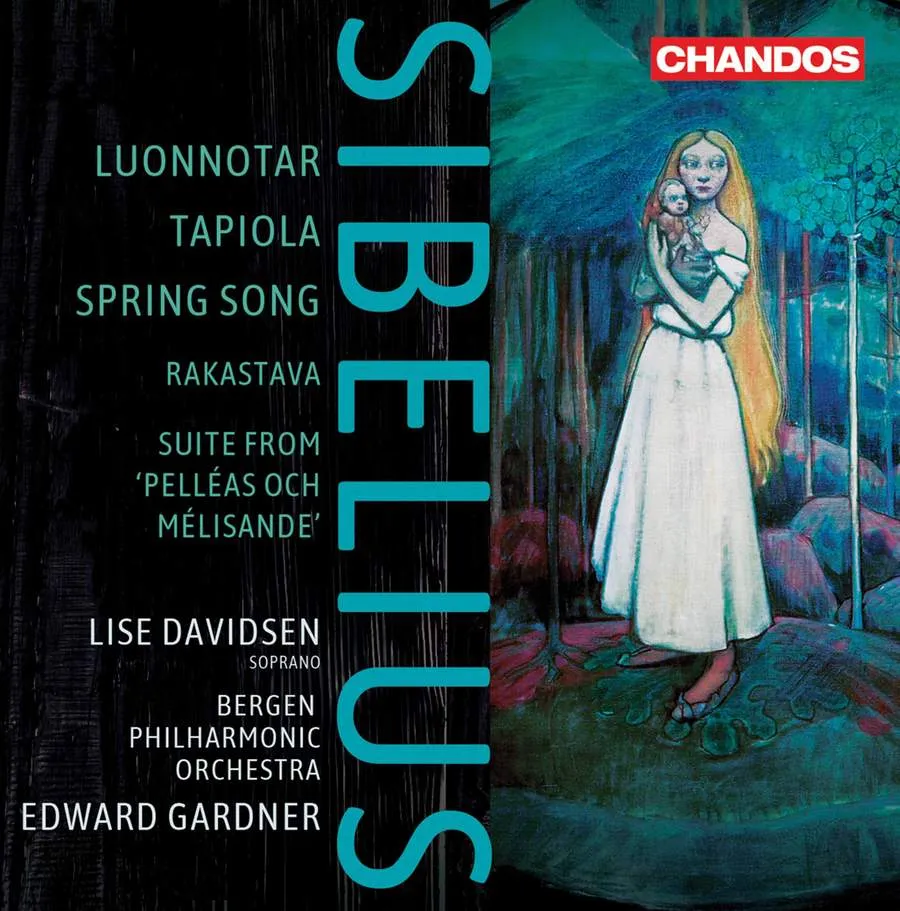
Sibelius Spring Song; Luonnotar*; Pelléas et Mélisande*; Rakastava; Tapiola *Lise Davidsen (soprano); Bergen Philharmonic/Edward Gardner Chandos CHSA 5217 (CD/SACD) 72:51 mins
Explaining his belated interest in Sibelius, Benjamin Britten remarked: ‘I find his conception of sound extremely personal and original…’ Never more so, arguably, than in Sibelius’s Luonnotar, composed in 1913 for the great soprano Aino Ackté, in which the Kalevala’s creation myth is narrated in sweeping arcs of melody over vestigial orchestral rustlings and rockings, with just one brief, fierce climax towards the end; or in the severe litanies, numbed repetitions and icy blasts of his culminating tone poem Tapiola.
The ostensibly more conventional character pieces of the Pelléas and Mélisande incidental music and the Nordic charms of Rakastava evoking a love-tryst, are equally shot through with idiosyncratic orchestral sonorities and textures. Mahler may have dismissed the early Spring Song as ‘kitsch’, but may at least have granted Sibelius’s skill in sustaining its oddly inflected melody over a span of some seven minutes.
This latest recording of Luonnotar features rising Norwegian soprano Lise Davidsen, whose breath control and even fullness of tone across a two-octave range prove radiantly equal to Sibelius’s uncompromising demands. Accounts of Tapiola can vary widely between an urgent 15 minutes under Paavo Berglund to a marmoreal 20-plus under Karajan; at 18 minutes, Edward Gardner retains tension enough, but with time to brood, in a vivid, convincingly paced account. And, as if in riposte to Mahler, the Bergen Philharmonic deliver the Spring Song with intensifying fervour.
Bayan Northcott